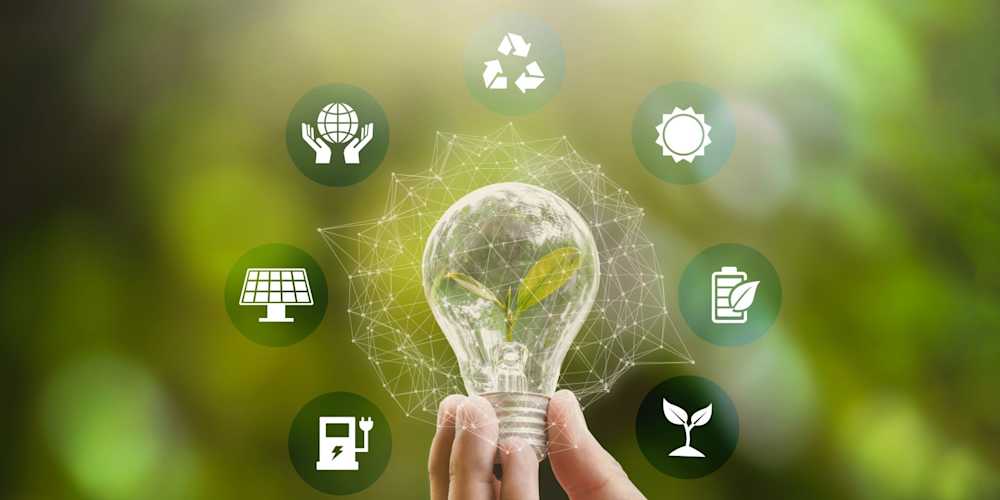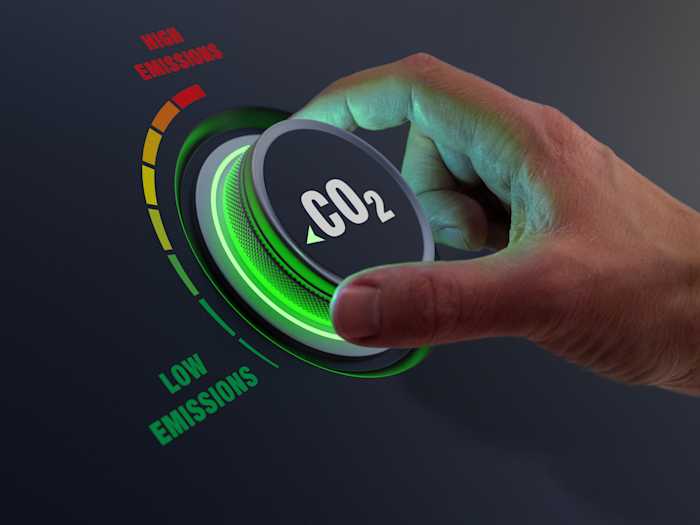Energy efficiency: Market Transformation in South and Southeast Asia
As more governments and businesses commit to ambitious net zero targets, energy efficiency measures will become even more important. Recent successes in energy efficiency advancements in Southeast Asia and South Asia, coupled with rising energy costs, are spurring investment in new energy efficiency technologies and business models. With the segment poised to follow the same trajectory as renewable energy, we expect to see an uptick of investment in mid-stage innovators within the next few years – along with the development of an ecosystem of related service companies. We anticipate that investment opportunities in climate finance will only continue to grow as the region’s vast energy efficiency landscape becomes more dynamic.

Diverse applications and advancements in energy efficiency investments
Energy efficiency applications, no longer confined to industrial improvements, are branching out into transportation, agriculture and, notably, the building sector given current and projected energy demand. The introduction of IoT-based energy management systems such as smart meters and efficient space-cooling technologies marks significant progress.
Another sector that can benefit from energy efficiency is water management, given the high demand for less energy-intensive water recycling processes. Water has become a major concern across industries due to the changing regulatory environment. In India, for example, large industrial and commercial plants are now required to operate with zero liquid discharge. The need to implement reverse osmosis and other costly technologies has sparked the growth of companies offering energy-efficient solutions in this field.
Evolving energy efficiency business models: From ESCOs to Energy-as-a-Service
Another boost to the segment stems from the Energy-as-a-Service (EaaS) business model, which has emerged as the successor to energy service companies (ESCOs). Initially, ESCOs invested in energy efficiency technologies and offered corporate customers energy savings. This model did not prove to be bankable, however, due to the inherent uncertainty surrounding energy savings predictions and, in turn, revenue and cash flow. As corporate customers made energy efficiency investments under their own balance-sheet financing, the scalability and adoption rate were also limited.
The EaaS model transforms this approach in that companies offer a particular service, such as heating or cooling, through standardized energy service contracts. A service provider can operate a chiller, for example, and offer customers chilled water; or a boiler to generate steam. Critically, the service providers now invest in and operate energy efficiency assets for 10-15 years (or longer), enabling them to approach corporate customers with a zero-investment proposal. This allows corporate customers to offload their energy efficiency costs to a competent third-party service provider and focus on their core investment priorities. What the new business model also gets right is the potential for scalability across industries – and the region.
Harnessing local and regional momentum of rising energy efficiency markets
Market acceptance of energy-efficient technologies is growing at varying rates across South and Southeast Asia. The level of acceptance is largely shaped by the policy and regulatory framework, ecosystem of service providers and hesitancy towards local financing. In India, local financial institutions have been integral to the deployment of energy efficiency technologies because of their familiarity with local players.
When it comes to navigating more segmented Southeast Asian markets, regional frontrunners from Singapore are forging the path ahead. These companies have been in a more favorable position to invest in pioneering technologies and business models, fueled as much by comparatively higher energy costs as by their more receptive attitude and reduced perception of risk. As a result, these companies have cultivated a reputable track record, enabling them to tailor their strategies in Vietnam, Indonesia, Thailand and the Philippines.
As for wider market acceptance across the region, it is important to look to the renewable energy sector and the role that capacity-building of both companies and lenders played in its development. Only six years ago, commercial and industrial PPA (power purchase agreement) models were not widely accepted across financial institutions in the region, due to the limited knowledge of long-term contract-based financing as well as the lack of standardized contracts. In Vietnam, for example, what proved effective was partnering with companies and financial institutions to develop PPA-based products and underwriting capabilities for private PPA-based projects. Likewise, as energy efficiency evolves as a segment, the key for innovative companies will be their ability to secure attractive long-term financing from lenders based on a solid track record.
Strategic investments create synergies with renewables
By drawing parallels with the renewable energy sector, we can see that the energy efficiency market is poised for transformation. While investments in energy efficiency have been traditionally made on a standalone basis, the key to moving forward will be aggregation. This approach will raise sufficient funding for the projects that are indispensable to meeting higher energy demand and achieving net zero targets. Aggregation – in combination with a service-oriented business model and rising energy costs – will make it less challenging to scale up energy efficiency investments compared to the past.

Sathish Dhanapal
Sathish is the Global Head of Climate Advisory Specialists at responsAbility, where he leads a team of specialists who collaborate with investees and partners across the globe to implement the climate strategy for responsAbility’s Climate Finance products. Having joined responsAbility in 2016, Sathish brings over 16 years of experience in technology assessment, climate impact assessment, and ESG advisory. His areas of expertise include Renewable Energy, Energy Efficiency, Wastewater Recycling, and Mobility. He holds a Bachelor's degree in Energy & Environmental Engineering from Tamil Nadu Agricultural University and an Executive Program in Business Management from IIM Calcutta.

